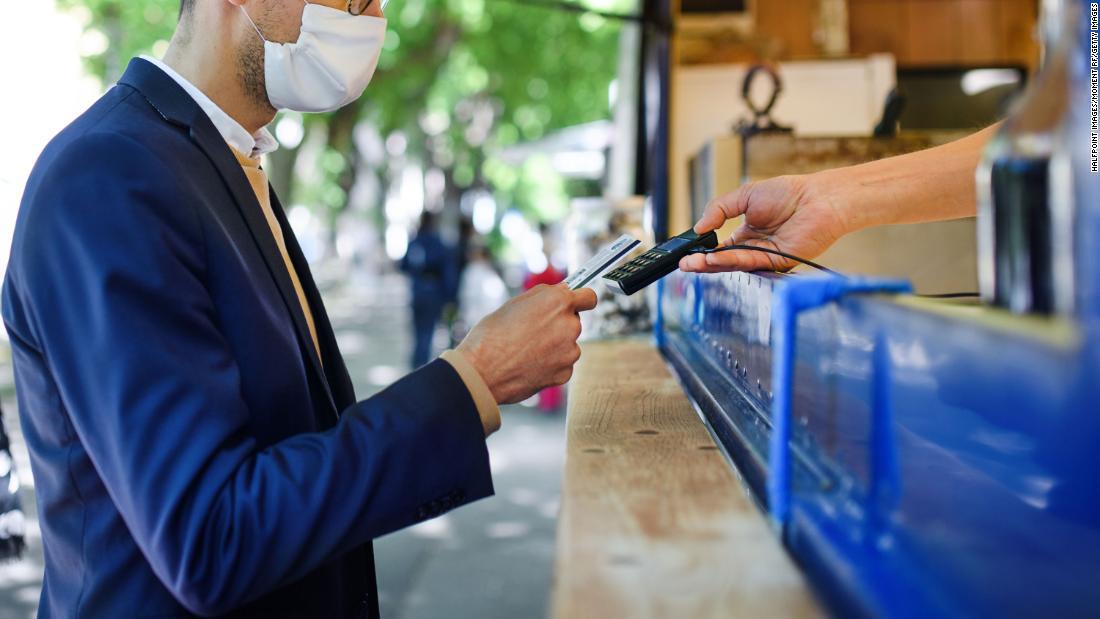How to improve the personal economy in a year?
7:02
(CNN Business) -
More than a year has passed since the pandemic began, and the United States economy is showing signs of recovery.
Covid-19 vaccination is on the rise, states have lifted some restrictions because of the pandemic, and many travelers are hitting the road again. While Americans are eager to jump into post-pandemic life, that could also mean spending more money on activities than Maybe they haven't done it in a while, like going to the movies, going out to dinner, or taking a vacation.
Economy and post-pandemic: Argentina's main challenges
But before you decide to open your wallet, there are a few things you should do to prepare your finances.
1. Check your budget
As life slowly returns to normal, take the time to find out where you are financially.
That means considering what you have and what you owe.
Shelly-Ann Eweka, TIAA's Senior Director of Financial Planning, suggests reviewing older bank and credit card statements, retirement and investment accounts, and your monthly bills and expenses.
"You need to understand how certain purchases and expenses are going to affect your future, but also your financial goals," says Eweka.
Be sure to review your payroll to see how much income you are making and if you are making the most of the business or tax benefits available to you.
For example, check if you are entitled to the child tax deduction or if your company offers you the possibility of matching your contributions to the 401 (k) plan.
advertising
From there, you can start to reassess your budget.
An example of this could be reallocating funds to spend on things like food or household items, or identifying ways to limit your spending.
You should also anticipate new expenses and old expenses that were put on hold during the pandemic, such as travel or childcare.
Consumers racking up $ 5.4 trillion in extra savings ... and that could lead to a spending boom
"If you plan to start spending on something that has taken a back seat while you were stuck at home, that money will have to come from another part of your budget," says Vadim Verdyan, head of counseling at Albert, a personal finance app.
2. Polish your financial goals
Your budget is not the only thing you will have to review.
You should also carefully analyze your financial goals to determine if they match your financial situation and expectations.
"You have to balance the future with the present," says Eweka.
The pandemic may have forced you to postpone financial milestones, such as buying your first car or home.
Or maybe you've tapped into your savings to help pay off debts.
Whatever your financial situation, after readjusting your expenses and savings with your new budget, you will also have to reassess your goals and prioritize what is most important.
"As things get back to normal, we have a good opportunity to turn the way we spend around," says Verdyan.
Verdyan recommends making a columnar short-term and long-term goal list to help you visualize which financial goals you should prioritize first.
Some of the most common goals are saving for retirement, creating an emergency fund, paying off credit card debt, or starting a business.
Americans rush to create new businesses during pandemic
Once you are clear about your financial goals, you can ensure that you are spending and saving savings to meet those goals appropriately.
3. Use debit or cash instead of credit cards
It can be tempting to want to swipe your credit card for certain purchases, but if you're not careful, you could end up with a huge pile of debt.
"Credit cards should only be used if you can make a full payment each month," says Adam Deady, MassMutual Certified Financial Planner.
"If that is not possible, you must have a plan to pay it off in a short period of time."
Five lessons from covid-19 to personal finance 3:27
You can also try using your debit card or cash instead when shopping, suggests Verdyan.
This way you can keep track of how much you are spending and how much you can spend on other purchases later.
"When you use a credit card, you may be trying to control how much you have spent in your head, which often makes the bill higher than you expected. This does not happen when you use cash or debit cards because you are getting rid of that hard-earned money, "Verdyan said.
4. Increase your emergency savings
Unexpected life events can happen at any time, and when they do, you want to be financially prepared.
That is why it is essential to have an emergency fund.
It can help you cover expenses that you did not factor in your budget, such as medical expenses, job loss, or car repairs.
Most financial experts recommend having three to six months of living expenses saved.
If you don't already have an emergency fund, increasing your savings should take precedence over whatever fun you've planned for yourself, Deady said.
"A fully funded emergency fund is the safety net that everyone needs to protect themselves from financial disaster," Deady said.
"It should be the top priority in terms of the allocation of cash."
Personal Finance

